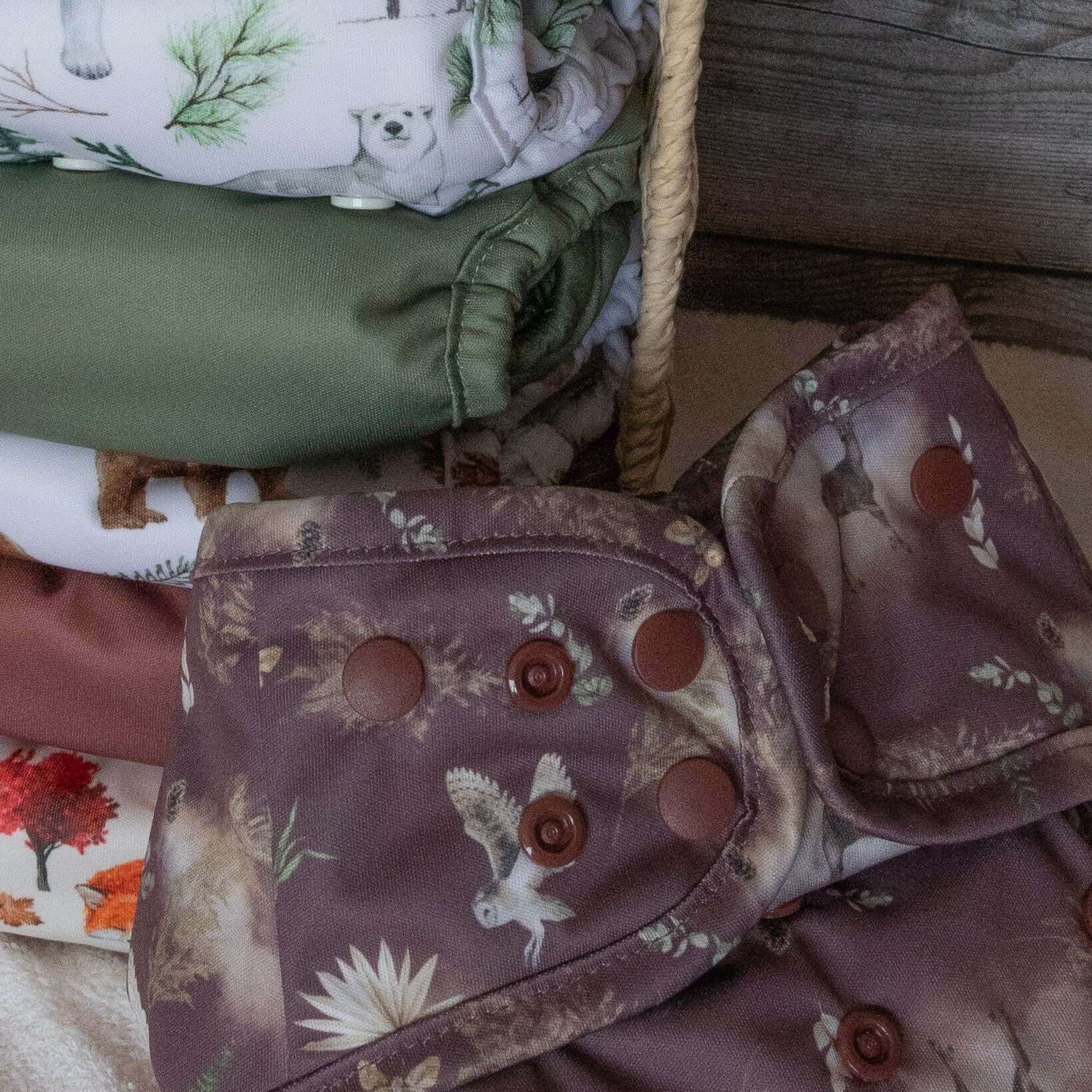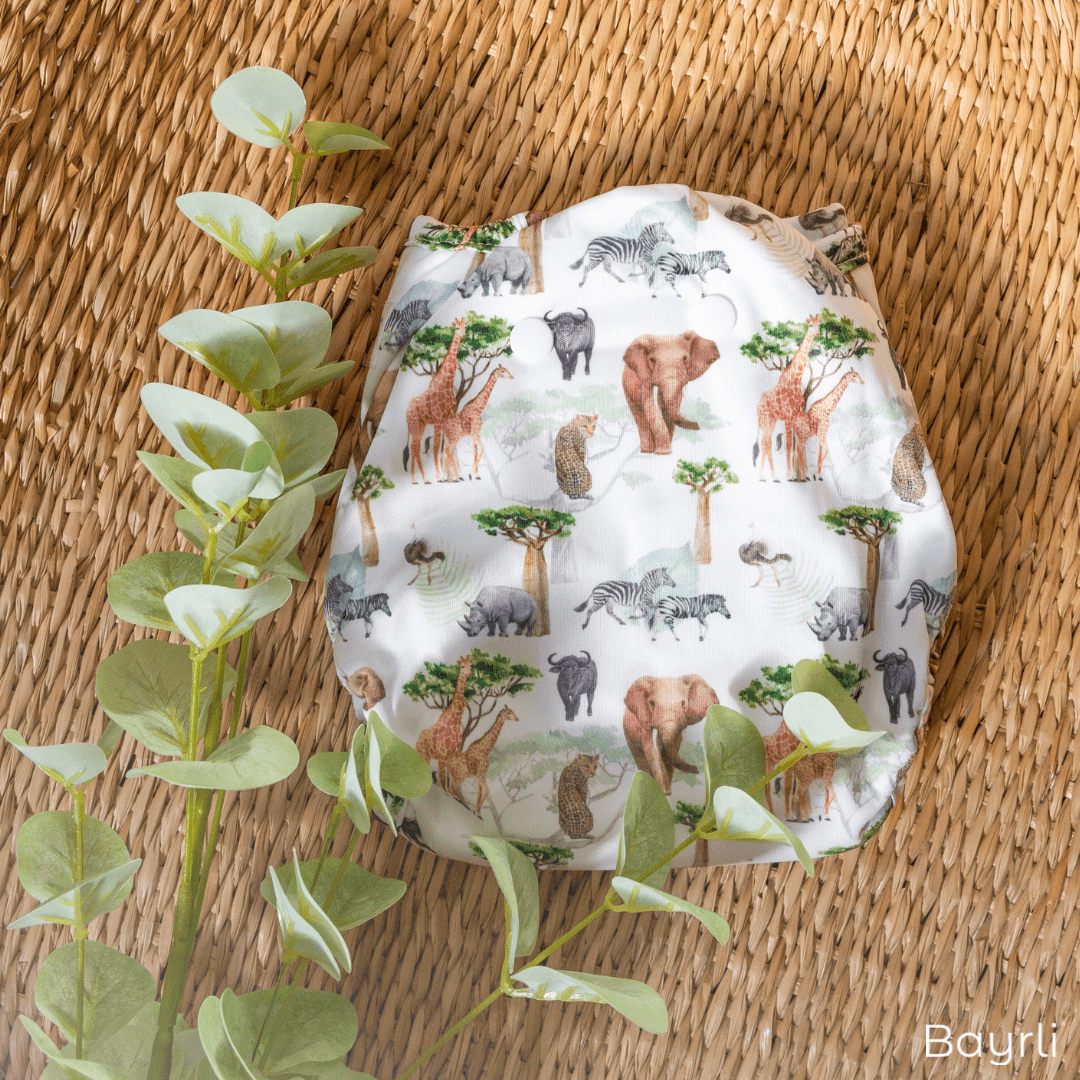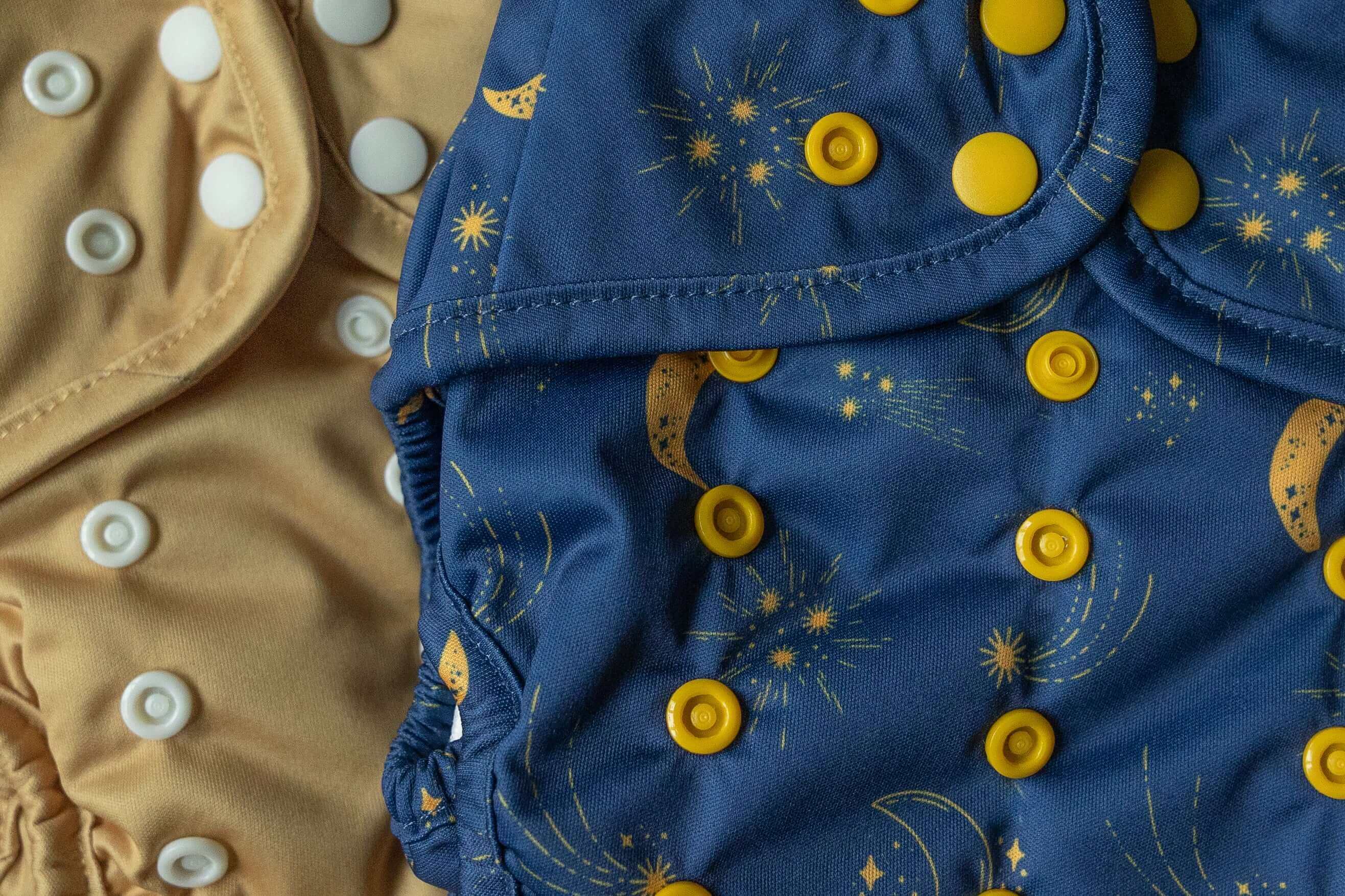
Cloth Diapers and Skin Sensitivities: Addressing Common Concerns
Introduction
In recent years, as environmental concerns grow and parents realise the rising costs of having a baby become more and more unsustainable with each passing year, cloth diapers have gained popularity among parents, especially for those whose babies experience skin sensitivities.
This guide delves into the benefits of cloth diapers versus disposable diapers in the context of skin health, addresses common concerns, and provides evidence-based recommendations. This guide is simply for you to use as a starting point - so many Bayrli customers have told us just how significant the change was with their little ones when they switched to cloth diapers, and we would like you to just consider the switch as well.
What Does Current Evidence Say?
Current research and evidence provide valuable insights into the impact of cloth diapers on sensitive skin:
-
Incidence of Diaper Dermatitis: A significant number of studies suggest that the incidence of diaper dermatitis is generally lower in babies using cloth diapers. This is attributed to the reduced exposure to chemicals and better air circulation.
-
Impact of Washing Practices: Research also indicates that the way cloth diapers are washed can affect their suitability for sensitive skin. Using mild, fragrance-free detergents and avoiding fabric softeners can make cloth diapers even safer for sensitive skin. Proper drying and occasional sun exposure for the diapers can also eliminate bacteria and reduce the risk of skin irritations.
-
Long-Term Skin Health: Some studies have explored the long-term impact of diaper choices on skin health. While more research is needed in this area, preliminary findings suggest that babies who use cloth diapers may have a lower risk of developing certain skin conditions later in childhood due to reduced exposure to irritants during infancy.
-
Parental Practices and Awareness: The evidence underscores the importance of parental practices in diaper management. Parents using cloth diapers are often more aware of the need for frequent changes and skin care, leading to better overall management of skin health.
-
Pediatrician Recommendations: Pediatricians often recommend cloth diapers for babies with particularly sensitive skin or allergies, as they can be a crucial part of a broader strategy for managing skin sensitivities.
Preventing Diaper Rash
- Frequent Changes: Change cloth diapers every 2-3 hours or immediately after soiling to prevent moisture buildup.
- Proper Cleaning: Use gentle, fragrance-free detergents and ensure diapers are thoroughly rinsed and dried.
- Barrier Creams: Apply barrier creams to protect the skin from moisture, just be sure to use a diaper liner.
- Breathable Covers: Choose diaper covers that allow air flow to keep the skin dry.
Recommendations on Diaper Change Frequency
For newborns, expect to change diapers approximately 10-12 times a day. As babies grow, this frequency will decrease. Pay attention to your baby's patterns and adjust accordingly. Everything you need to know is in our dedicated section here.
Summary and Best Practice Tips
- Choose the Right Fabric: Opt for natural fibers like cotton or bamboo, which are gentler on sensitive skin.
- Regular Washing Routine: Establish a regular washing routine to maintain the diapers' hygiene.
- Monitor for Signs of Discomfort: Regularly check your baby's skin for any signs of redness or irritation.
- Consult Pediatricians: If skin issues persist, consult a paediatrician for personalized advice.
Cloth diapers can be a skin-friendly, sustainable choice for parents of babies with sensitive skin, especially those that predominantly use natural materials and are manufactured in a safety compliant manner. With the right practices, reusable diapers offer a comfortable, healthy option for your baby's diapering needs.


